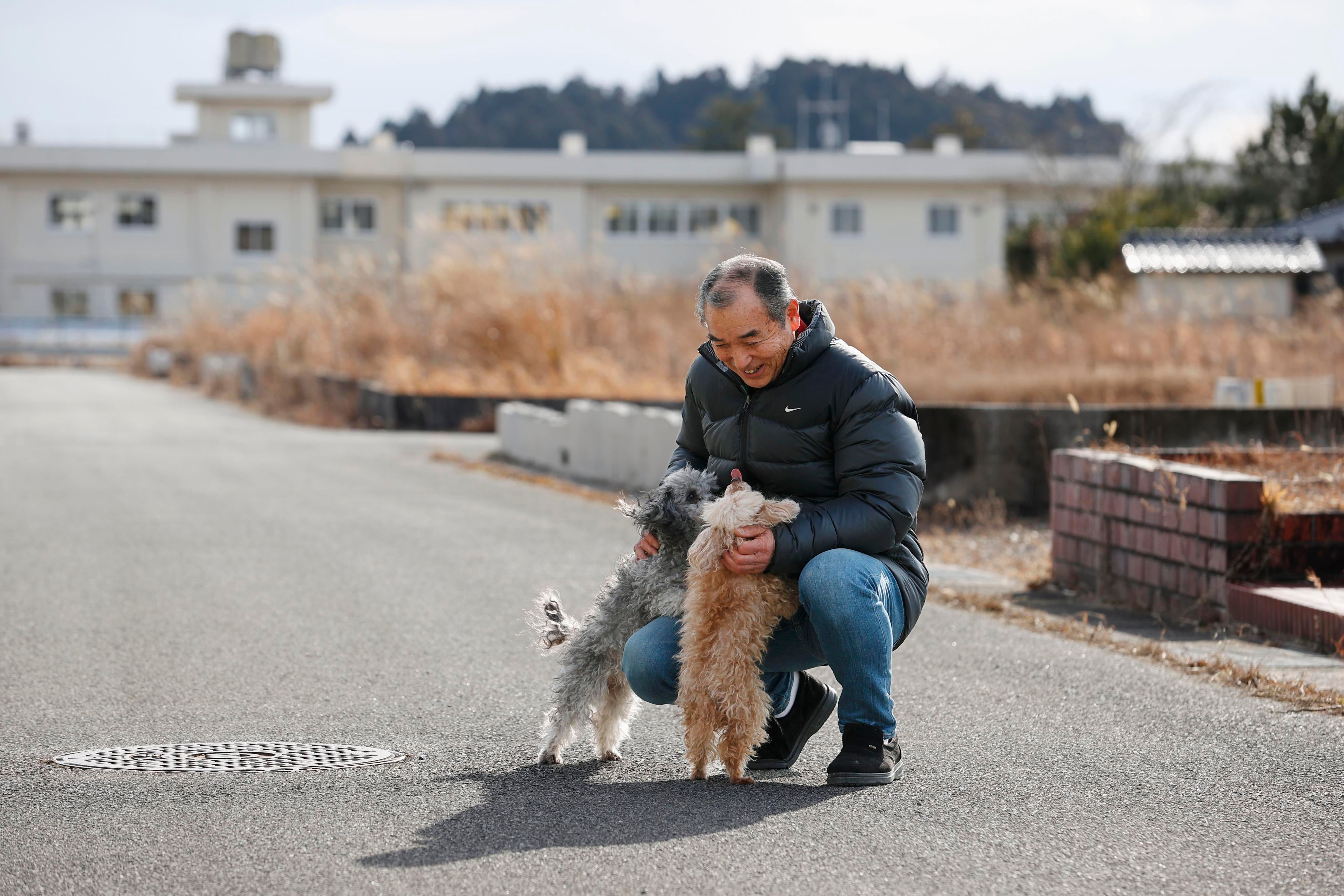Several return to live in Fukushima's last deserted town
Several former residents of Futaba, the only remaining uninhabited town in Japan still recovering from effects of radiation from nuclear plant meltdowns in 2011, have returned to live for the first time since the massive earthquake and tsunami forced them out

Your support helps us to tell the story
From reproductive rights to climate change to Big Tech, The Independent is on the ground when the story is developing. Whether it's investigating the financials of Elon Musk's pro-Trump PAC or producing our latest documentary, 'The A Word', which shines a light on the American women fighting for reproductive rights, we know how important it is to parse out the facts from the messaging.
At such a critical moment in US history, we need reporters on the ground. Your donation allows us to keep sending journalists to speak to both sides of the story.
The Independent is trusted by Americans across the entire political spectrum. And unlike many other quality news outlets, we choose not to lock Americans out of our reporting and analysis with paywalls. We believe quality journalism should be available to everyone, paid for by those who can afford it.
Your support makes all the difference.Several former residents of Futaba, the only remaining uninhabited town in Japan still recovering from effects of radiation from nuclear plant meltdowns in 2011, have returned to live for the first time since the massive earthquake and tsunami forced them out.
Authorities have declared most other areas safe and reopened them following extensive decontamination efforts over the past decade.
In Futaba, only 15 of 7,000 residents living there before the tragedy struck expressed their desire to return this week on a trial basis. A fully-fledged reopening of the town on Japan's northeastern coast is set for June.
“It’s the first time in 10 years and 10 months that I’ve seen running water come out,” a beaming Yuji Onuma told NHK television. He said he looks forward to cooking fried noodles and eating with his wife and children when they start their lives back in town together later this month.
He was there alone briefly Friday with several others who in recent years have been gradually cleaning their homes during allowed daytime visits.
Another returnee, Yoichi Yatsuta, said he hoped town officials will pursue reconstruction to restore the life as much as possible to encourage younger people to come back.
Their town was the hardest hit when the nearby Fukushima Daiichi nuclear plant went into meltdowns following the 9.0 magnitude quake that sent tsunami waves washing over the coast, killing some 18,000 people, including more than 50 in Futaba.
Most of the remaining population were forced to evacuate to another town in Fukushima prefecture due to the radiation and contamination of the area, which has been largely deserted since.
While relocating, many of the former residents have found new jobs and community ties and say they have no interest in coming back.
A small section near the Futaba train station, which was cleaned and rebuilt, was opened for daytime visits in March last year, just before the Olympic torch relay ahead of the Tokyo Summer Games.
Futaba Mayor Shiro Izawa said the return on a trial basis “is a first step toward Futaba town's reconstruction. I'm sure many town residents have long been waiting for this day.”
There are no medical services or enough shops. For now, the residents must go out of town to find a hospital or shop for food and other daily necessities.
Izawa promised to provide ample support ahead of the formal lifting of part of the town’s no-go zones in June.
Prospects for a larger return are grim.
Futaba’s registered residents already have decreased by nearly 2,000 from its pre-disaster population. Even after radiation levels declined to safe levels, the region’s farming and fishing continue to be hurt by lingering concerns among consumers and retailers.
The nuclear plant is being decommissioned in a process that will take decades. The government is also building temporary storage for massive amounts of debris and soil from ongoing decontamination efforts.